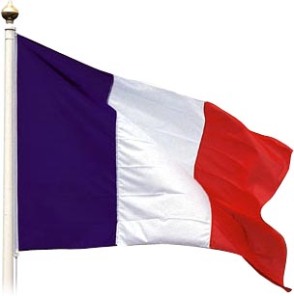Languages of the world:
Mandarin is a group of related dialects or varieties spoken the Northern and Southwestern of China. It has more native speakers than any other language in the world (nearly one billion speakers). The term “Mandarin” is borrowed from Portuguese (“mandarim”), this word means counselor or minister.
In the early 20th century the “Standard Chinese” was adopted as the national language. It was based on the Beijing (phonology) and other Mandarin dialects (vocabulary), thus this “Standard Chinese” is also known as Mandarin (Pǔtōnghuà).It is the official language of the People’s Republic of China, the Republic of China (Taiwan) and Singapore.
The phonology of Mandarin Chinese consists of two dozen consonants and about half a dozen vowels, some of which form diphthongs and four tones.
The writing system for almost all the varieties of Chinese is based on a set of written logograms that has been passed down with little change for more than two thousand years. While it is possible to invent new characters, Chinese usually borrows old ones that have fallen into disuse. Chinese characters were traditionally read from top to bottom, right to left but in modern usage it is more common to read from left to right.
Although Standard Chinese is the lingua franca of China, it differs from dialects, even in the Mandarin group, to the point of being to some extent unintelligible. The linguistic diversity is so large that neighboring city dwellers may have difficulties communicating with each other without a lingua franca.
Chinese facts:
- Chinese grammar is surprisingly straightforward, with none of the tenses, plurals, cases or genders that can make learning European languages difficult.
- The hard part about Chinese is mastering the tones. Mandarin Chinese is a tonal language, which means the pitch or intonation in which a sound is spoken affects the meaning.
- For reading Chinese without using Latin alphabet it is necessary to memorize a large quantity of Chinese characters. If you want to read a newspaper you will have to learn around 2.000 Chinese Characters.
- Intonation is very important in Chinese. For example wǒ xiǎng wèn nǐ, means I want to ask you. But if you say it with a different intonation you may end up saying I want to kiss you.
- Chinese people place great emphasis on titles. If the name of your teacher is for example Mrs Wang, you should call her Wang Lǎoshī, meaning Teacher Wang. For doctors it is used Yīshēng. Xiānsheng for Mr. and Nǚshì for Ms.
- Keep in mind that in China there are different dialects, and they are hardly understood among them, so you could end up listening to two Chinese people talking in English because their dialects are completely different from one to another and they find it easier to talk in English language if they both know it.
- Knowing how to read and write Chinese characters will help you pick up Writtern Japanese quicker, because Japanese langue uses a large amount of characters with exactly the same meaning than in Chinese but pronunciation and grammar is completely different between these two languages.
Here, at the University of Almería, you can find Chinese courses in our “centro de lenguas”.
再见 (Zàijiàn) and visit us on Facebook !!


